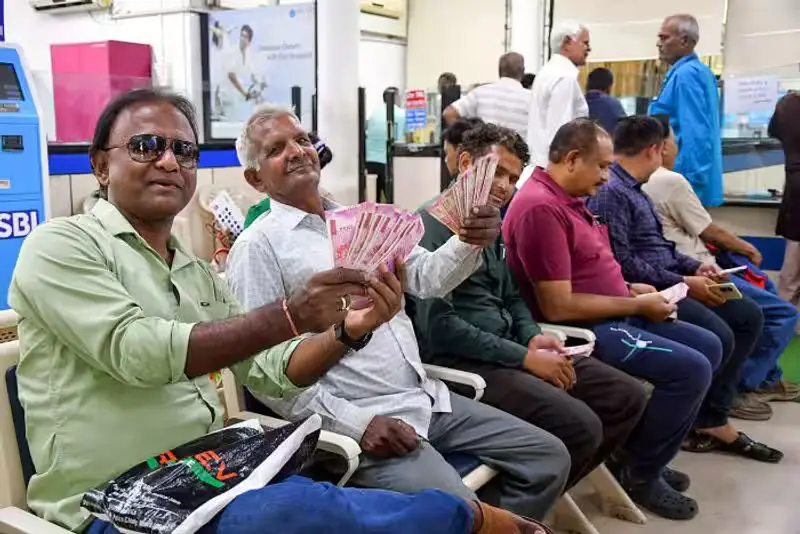Tuesday was a day filled with confusion as a result of certain banks’ requests for identity cards prior to the exchanging of notes. In spite of the fact that the biggest public sector lender in India, the State Bank of India, has issued a circular indicating that neither requisition forms or ID cards will be required for the notes exchange or deposits, this continues to be the case.

At a number of banks in the nation’s capital, clients had difficulties on the first day of the process of depositing and exchanging Rs 2,000 notes for ones of a smaller denomination. The process began on November 8. Tuesday was a day filled with confusion as a result of certain banks’ requests for identity cards prior to the exchanging of notes. In spite of the fact that the biggest public sector lender in India, the State Bank of India, has issued a circular indicating that neither requisition forms or ID cards will be required for the notes exchange or deposits, this continues to be the case.
Mohammed Azad, a local of the Jamia Millia Islamia neighbourhood, went to the Bank of India and the Indian Bank, both of which are financial institutions operating under India’s public sector, in order to exchange his 2,000 rupee notes. The banker at the Jamia Milia University branch of the Bank of India declined to exchange the notes, citing the fact that the institution does not have any guidelines in this regard. Azad was given the information that the bank account will only accept deposits of notes.
After his attempt at the Bank of India was unsuccessful, he went to the Indian Bank branch that was located close. It was explained to him that the transaction could only take place if he possessed the necessary KYC (Know Your Customer) documents. When Azad faced customers of the bank branch who did not have accounts there, the teller was at a loss for what to say.
Another buyer, a former officer in the Indian Army named Brig Sandeep Thapar, had similar problems exchanging the notes. He wrote the following in a tweet: “I went to my bank, which is Canara. According to the manager, there will be no trading of notes today. Only after midnight tomorrow.”
A person on Twitter posted the following message: “… I am in the bank (HDFC), waiting in queue. Everyone will be required to fill out papers, verify their identification, and check their phone numbers. The manager cites a “internal decision” as the reason for their choice.
Private banks such as Kotak and HSBC, as reported by the news agency PTI, have stated that they are requesting a form or ID Proof from customers who do not have an account with them. The Bank of Baroda has stated that they do not require any forms, however customers who do not already have an account must provide evidence of identification. Both ICICI and HDFC have stated that they need all clients to fill out forms, but only non-account holders are required to provide evidence of identification.
However, the most powerful bank in India, known as the Reserve Bank of India, has stated unequivocally in its instructions that any individual in India is permitted to exchange notes at any bank, regardless of whether or not the individual maintains an account with that particular bank.
The Reserve Bank of India has also released rules concerning a situation in which a bank refuses to accept the deposit or exchange of currency notes.
“If the bank does not respond within a period of 30 days after lodging of the complaint or if the complainant is not satisfied with the response/resolution given by the bank, the complainant can lodge the complaint under the Reserve Bank – Integrated Ombudsman Scheme (RB-IOS), 2021 at the Complaint Management System portal of RBI (cms.rbi.org.in),” the central bank has said. “This can be done at the Complaint Management System portal of RBI.”
People were asked by the governor of the Reserve Bank of India (RBI), Shaktikanta Das, on Monday not to panic and rush to deposit or exchange their Rs 2,000 currency notes because they still have four months to do so. He maintained that the notes would still be lawful even after September 30th, even though the date had passed.